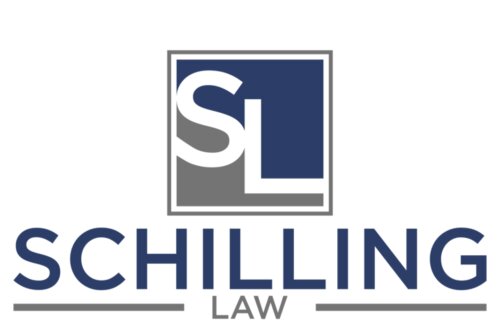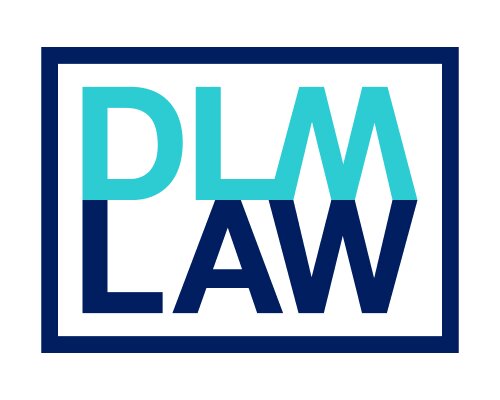Best Tax Lawyers in Kansas
Share your needs with us, get contacted by law firms.
Free. Takes 2 min.
Or refine your search by selecting a city:
List of the best lawyers in Kansas, United States
About Tax Law in Kansas, United States
Tax law in Kansas governs how individuals, businesses, and other entities pay taxes to the federal government, the state of Kansas, and to local municipalities. This includes income tax, sales tax, property tax, inheritance tax, and additional state and local taxes. Tax law in Kansas encompasses a wide range of legal guidelines and compliance requirements, and it is subject to updates based on legislative changes both at the state and federal levels.
Why You May Need a Lawyer
Tax matters can be complex and overwhelming, especially if you are unfamiliar with the intricate regulations and filing requirements. You may need a tax lawyer in Kansas if you are facing an audit by state or federal tax authorities, disputing a tax bill, want to minimize your liability, need help understanding business tax obligations, plan to appeal a tax decision, or require representation in court. Common situations include handling disputes with the Kansas Department of Revenue, planning for estate taxes, resolving payroll tax issues for businesses, or addressing criminal allegations involving tax evasion or fraud. Having a knowledgeable tax lawyer can help ensure your rights are protected and that you meet all legal obligations while maximizing your financial interests.
Local Laws Overview
Kansas has its own set of tax laws that operate alongside federal requirements. Key features include a progressive state income tax, state and local sales taxes, property taxes levied by counties and municipalities, and excise taxes on certain products like fuel and alcohol. The Kansas Department of Revenue oversees most tax collection and enforcement operations. Kansas uses a three-tiered state income tax rate, and residents must also follow separate rules for deductions and exemptions that may differ from federal law. Businesses are subject to various taxes, such as corporate income tax, franchise tax, and employment taxes, with specific reporting, payment, and compliance deadlines. The state also participates in reciprocity with certain other states regarding tax credits and liabilities.
Frequently Asked Questions
What types of taxes do Kansas residents have to pay?
Kansas residents are subject to federal and state income tax, state and local sales tax, property tax, vehicle taxes, and possible excise taxes depending on specific goods or activities.
How does the Kansas state income tax system work?
Kansas uses a progressive tax rate with brackets based on income levels. You file annually, reporting income from all sources, and may claim certain state-specific deductions and credits.
Do I need to file a state income tax return if I already filed a federal return?
Yes, if you are a Kansas resident or earned income in Kansas, you must file a separate state return even if you filed with the IRS. The requirements for each may differ.
What should I do if I receive a notice of audit or tax deficiency from the Kansas Department of Revenue?
You should respond quickly and consider consulting a tax lawyer, as these notices have strict deadlines and can result in additional liabilities, penalties, or legal consequences if not addressed.
Are there property tax exemptions available in Kansas?
Certain property tax exemptions exist for specific groups, such as seniors, veterans, and nonprofit organizations. You must apply through your local county appraiser's office, and eligibility requirements vary.
What is Kansas sales tax and who must collect it?
Kansas has a state sales tax, and most localities impose additional taxes. Businesses selling taxable goods or services must register, collect, and remit these taxes to the state on a regular basis.
Are Kansas business taxes different from those in other states?
Yes, Kansas imposes its own corporate income, franchise, and business taxes, and the rates, deductions, and compliance rules may differ from those in other states. Multistate businesses may face additional complexity.
Can I challenge or appeal a tax decision in Kansas?
Yes, taxpayers can appeal tax assessments, audits, and penalties. The appeal process begins with the Kansas Department of Revenue and may progress to administrative hearings or courts as necessary.
What happens if I fail to pay my Kansas taxes?
Failing to pay taxes can result in penalties, interest, wage garnishments, liens on property, and possible criminal charges. Immediate action, such as payment arrangements or legal counsel, is highly recommended.
How can a tax attorney help with estate or inheritance tax planning?
A tax lawyer can help structure your estate, ensure compliance with Kansas and federal tax laws, minimize tax liabilities, and assist with filings and appeals related to probate and inheritance taxes.
Additional Resources
For individuals seeking more information or assistance with tax issues in Kansas, the following resources may be helpful:
- Kansas Department of Revenue - Administers state taxes, offers forms and guides, and has a taxpayer assistance hotline.
- Internal Revenue Service (IRS) - Federal tax information, forms, and guidance for individuals and businesses.
- Legal Aid of Kansas - Provides free or low-cost legal services, especially to low-income individuals facing tax problems.
- Local County Appraiser and Treasurer Offices - Offer information about property taxes, exemptions, and assessment appeals.
- National Association of Tax Professionals and American Bar Association - Directories to find qualified tax professionals and attorneys in Kansas.
Next Steps
If you need legal assistance with a tax matter in Kansas, start by gathering all relevant documents and communications from tax authorities. Write down your questions and concerns. Contact a reputable tax lawyer with Kansas experience to discuss your issues-many offer initial consultations. If you qualify for free or reduced-cost legal aid, reach out to local legal aid organizations. Remain proactive and communicate promptly with any government agencies involved to avoid escalating penalties or legal issues.
Lawzana helps you find the best lawyers and law firms in Kansas through a curated and pre-screened list of qualified legal professionals. Our platform offers rankings and detailed profiles of attorneys and law firms, allowing you to compare based on practice areas, including Tax, experience, and client feedback.
Each profile includes a description of the firm's areas of practice, client reviews, team members and partners, year of establishment, spoken languages, office locations, contact information, social media presence, and any published articles or resources. Most firms on our platform speak English and are experienced in both local and international legal matters.
Get a quote from top-rated law firms in Kansas, United States — quickly, securely, and without unnecessary hassle.
Disclaimer:
The information provided on this page is for general informational purposes only and does not constitute legal advice. While we strive to ensure the accuracy and relevance of the content, legal information may change over time, and interpretations of the law can vary. You should always consult with a qualified legal professional for advice specific to your situation.
We disclaim all liability for actions taken or not taken based on the content of this page. If you believe any information is incorrect or outdated, please contact us, and we will review and update it where appropriate.
Browse tax law firms by city in Kansas
Refine your search by selecting a city.











